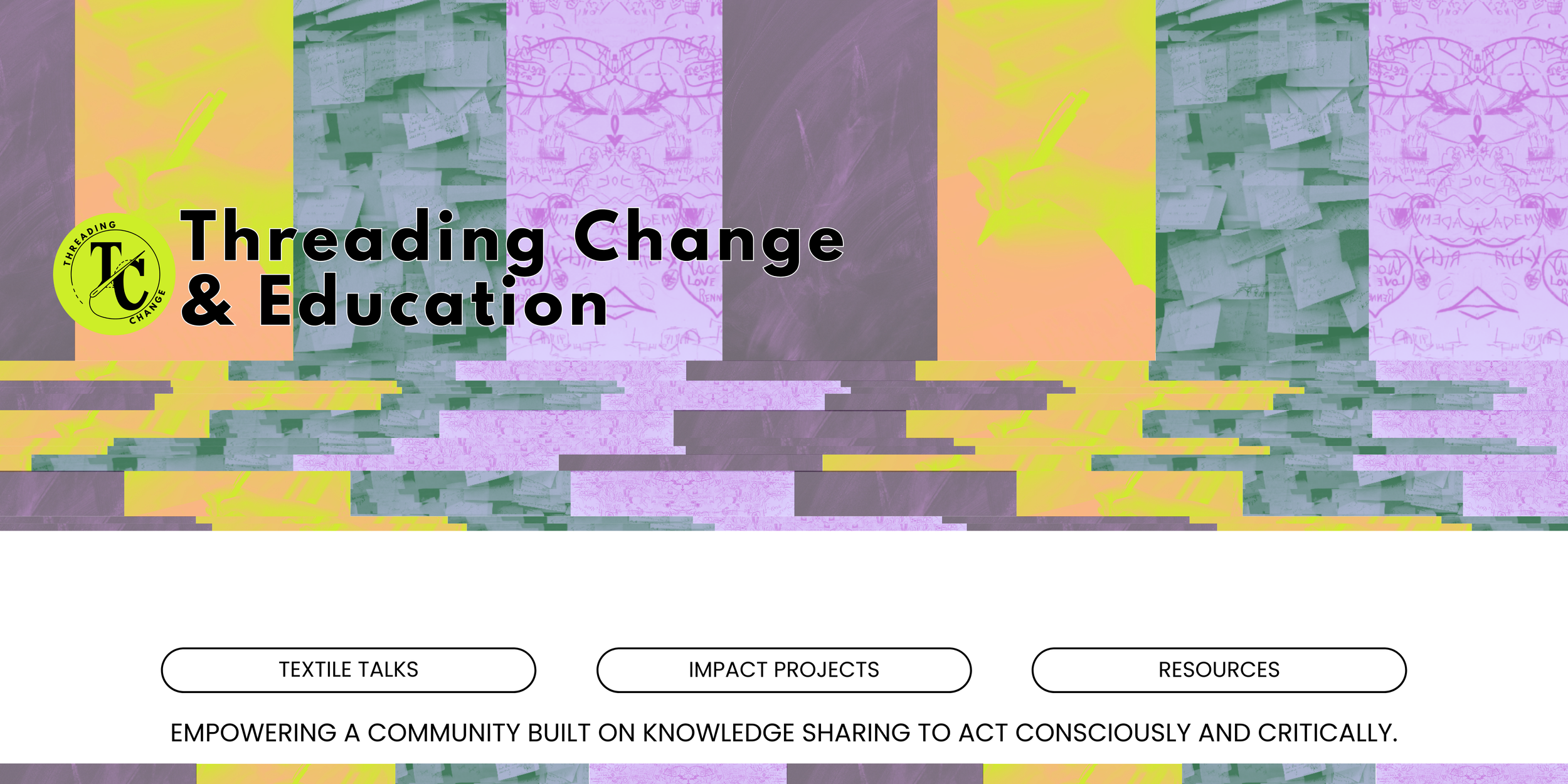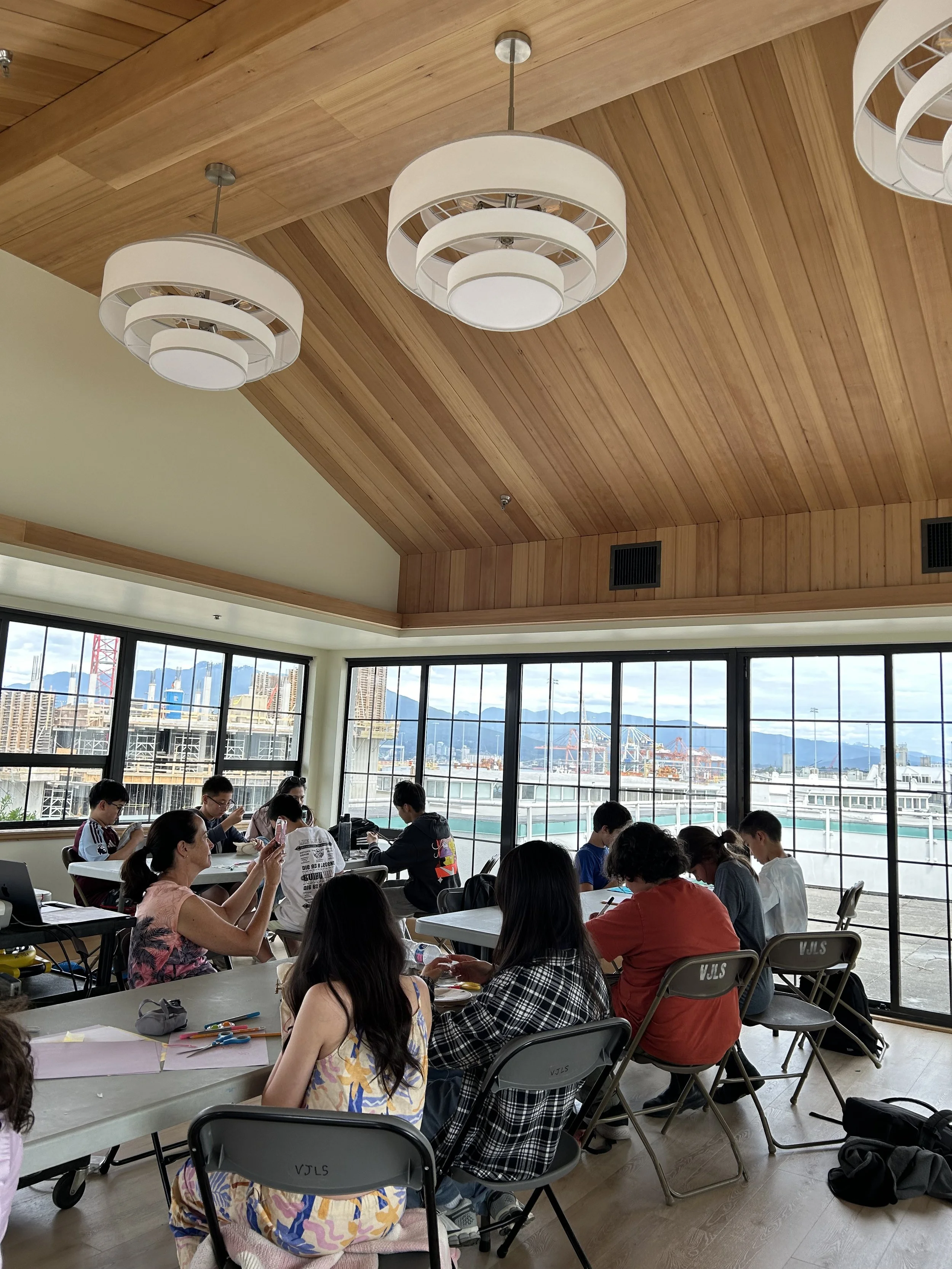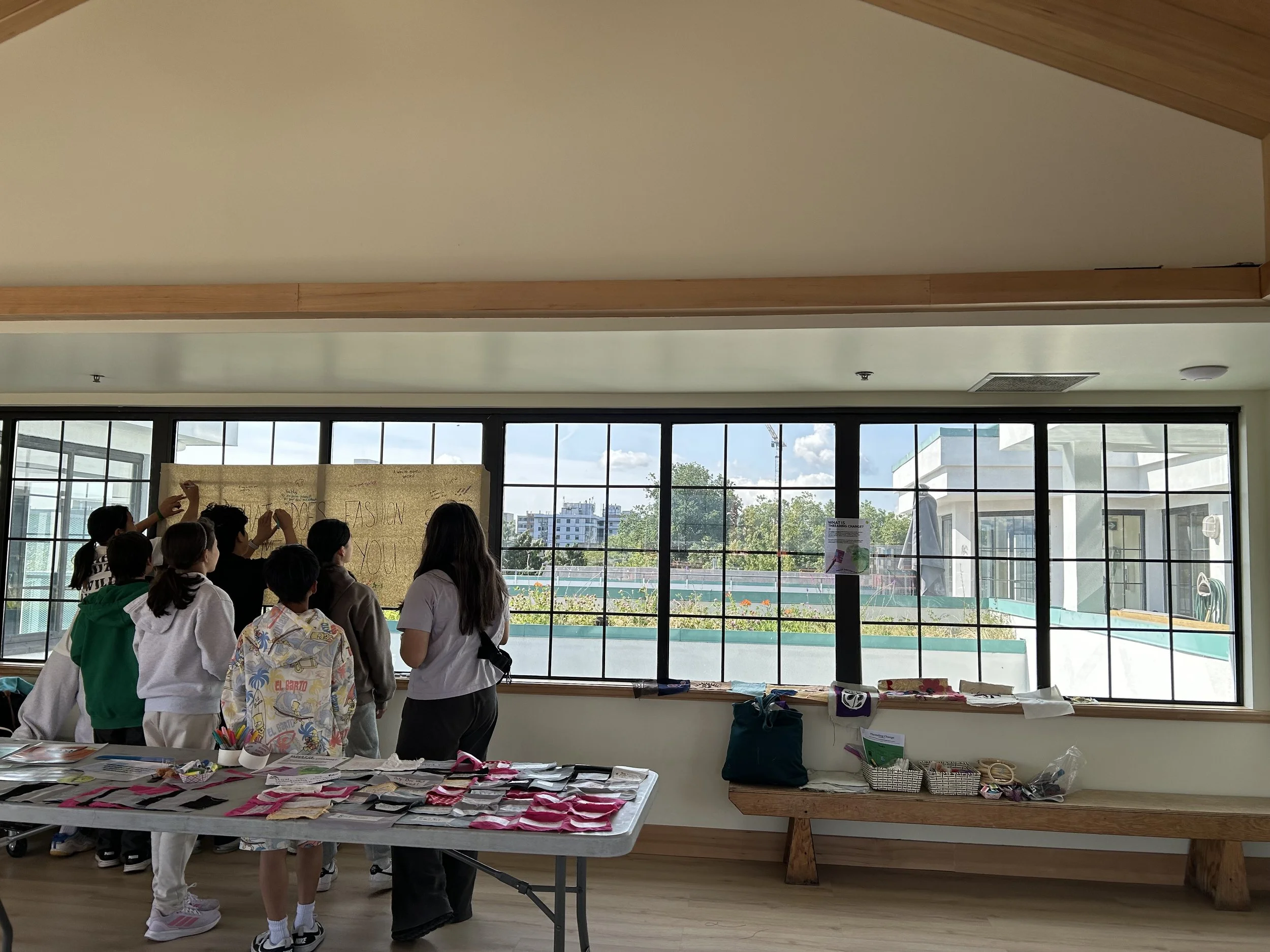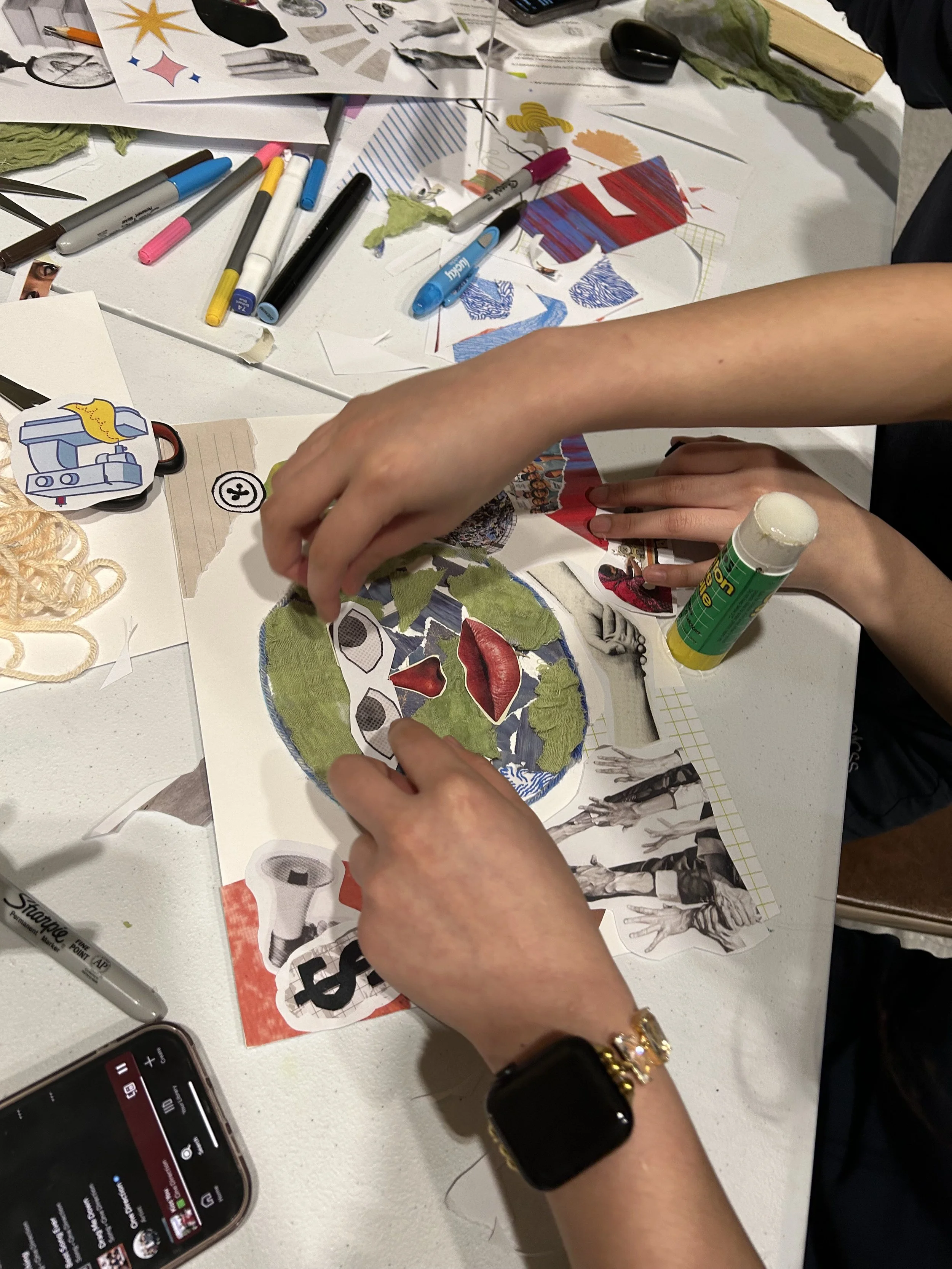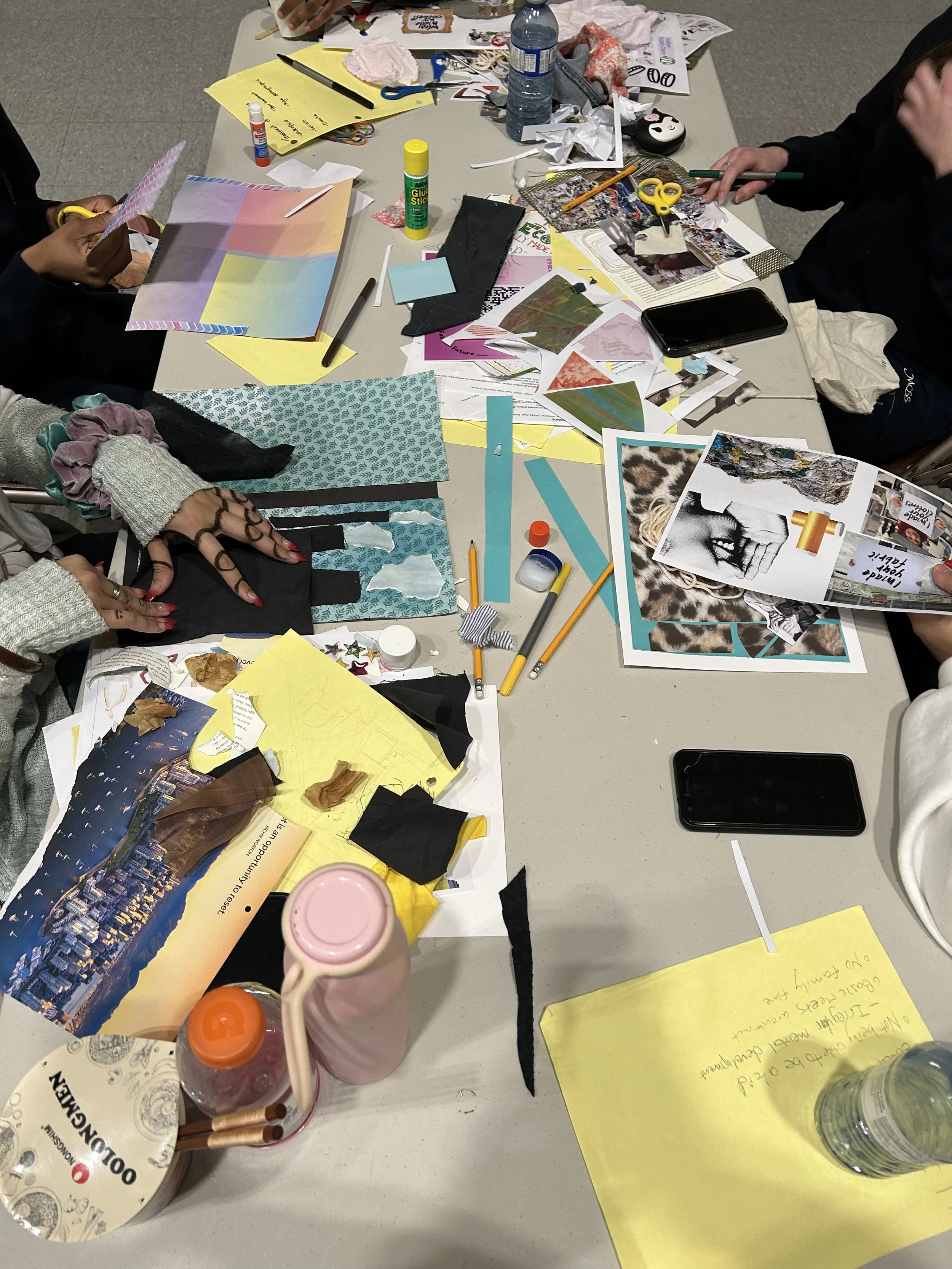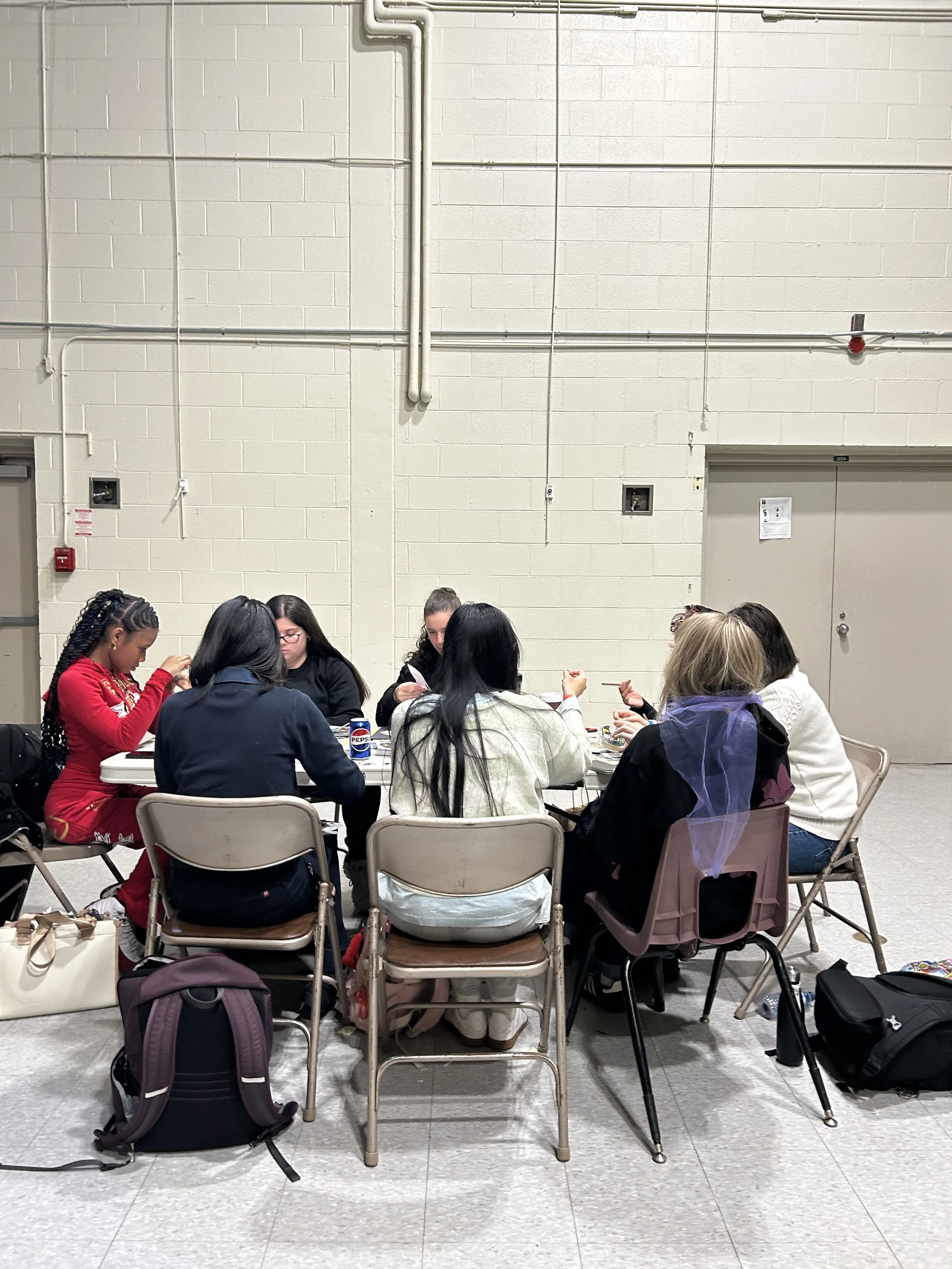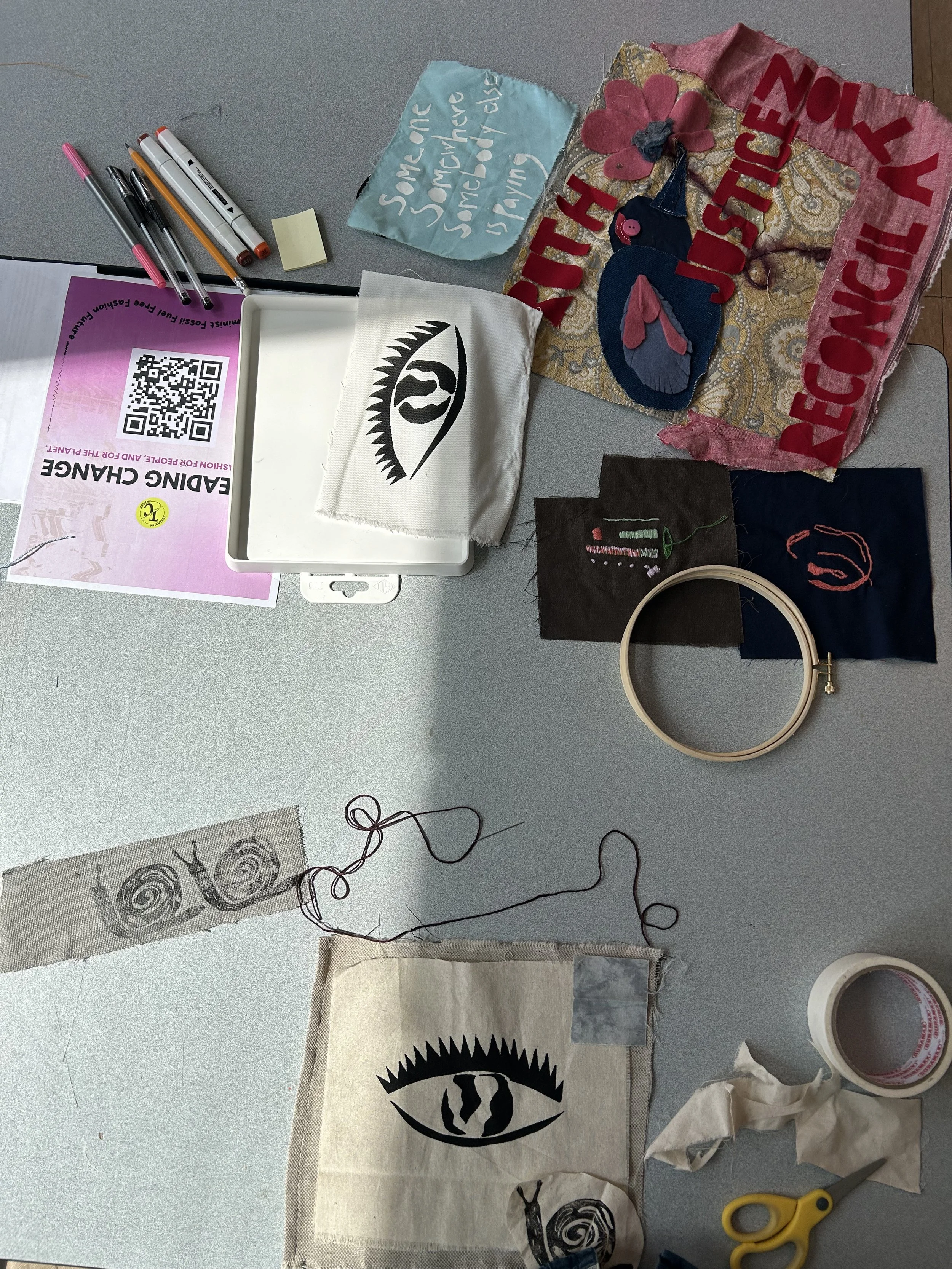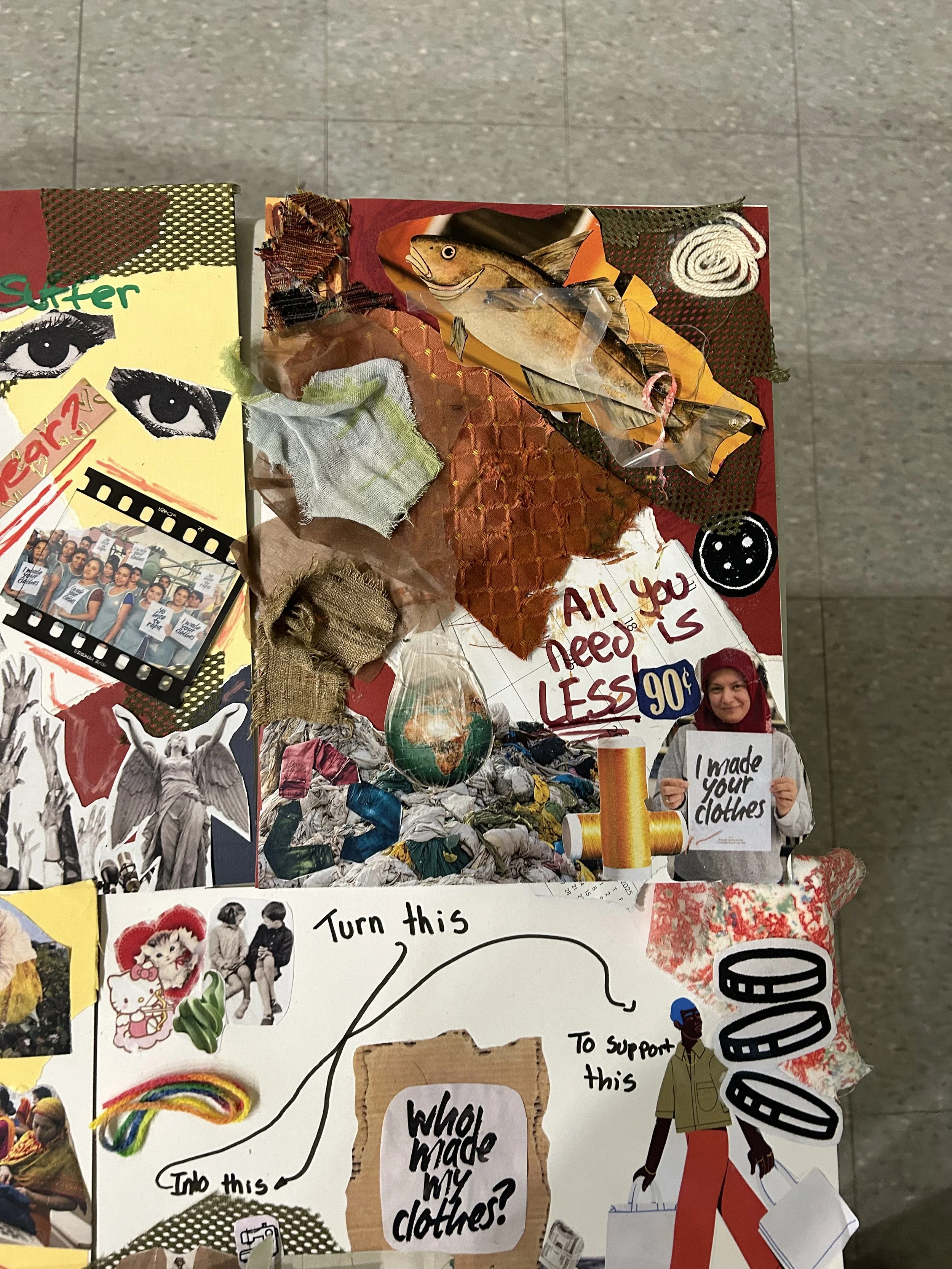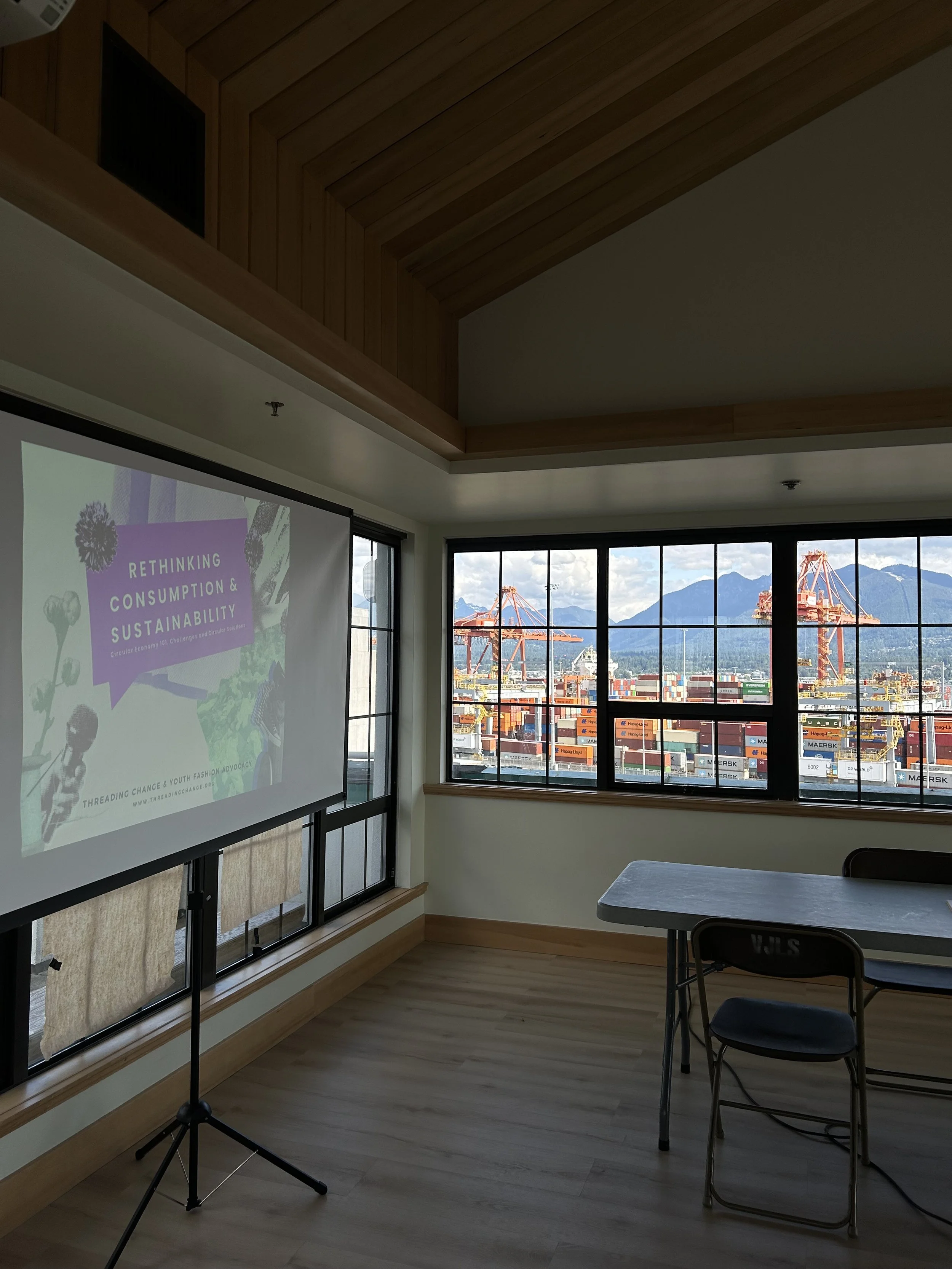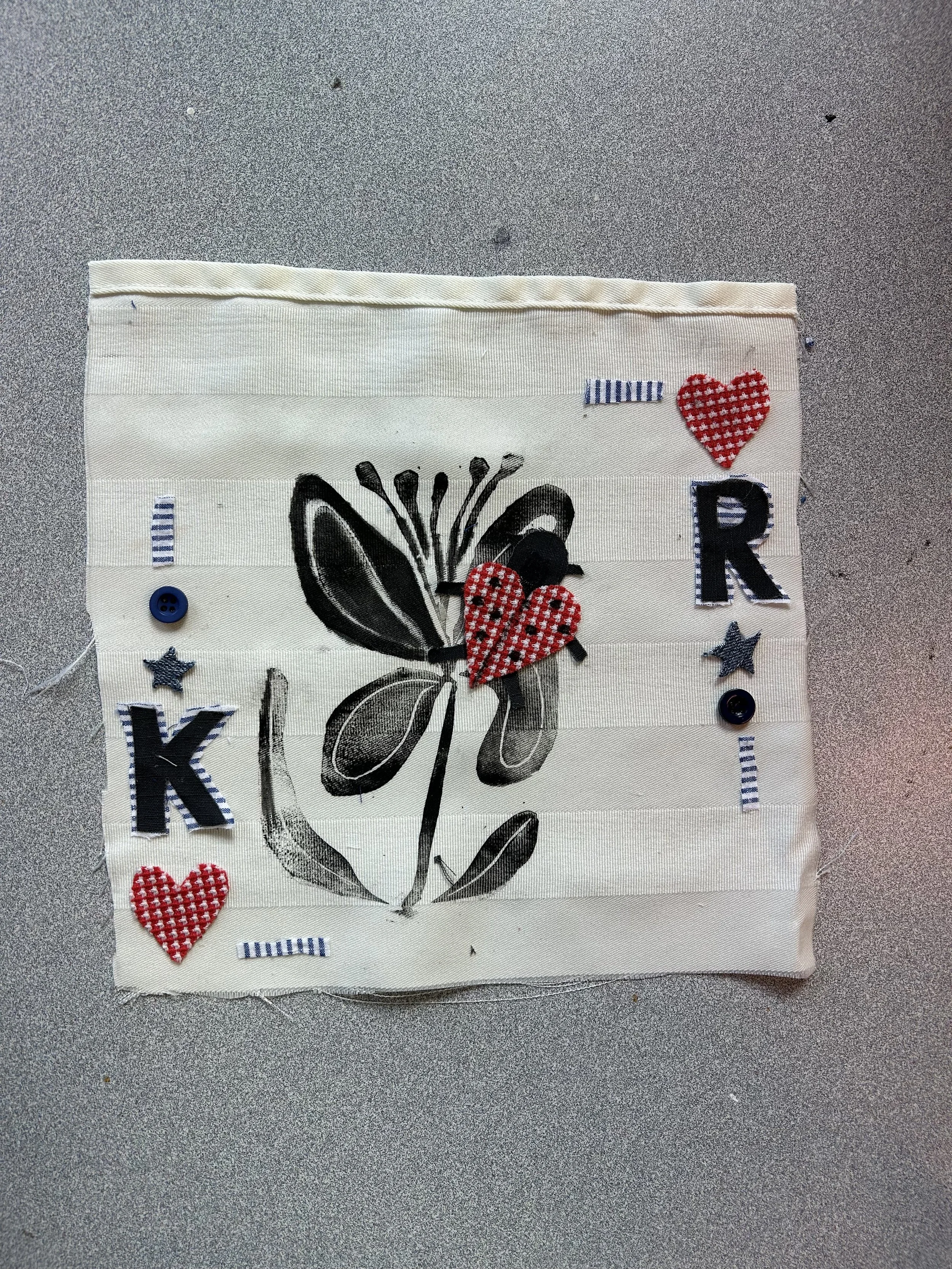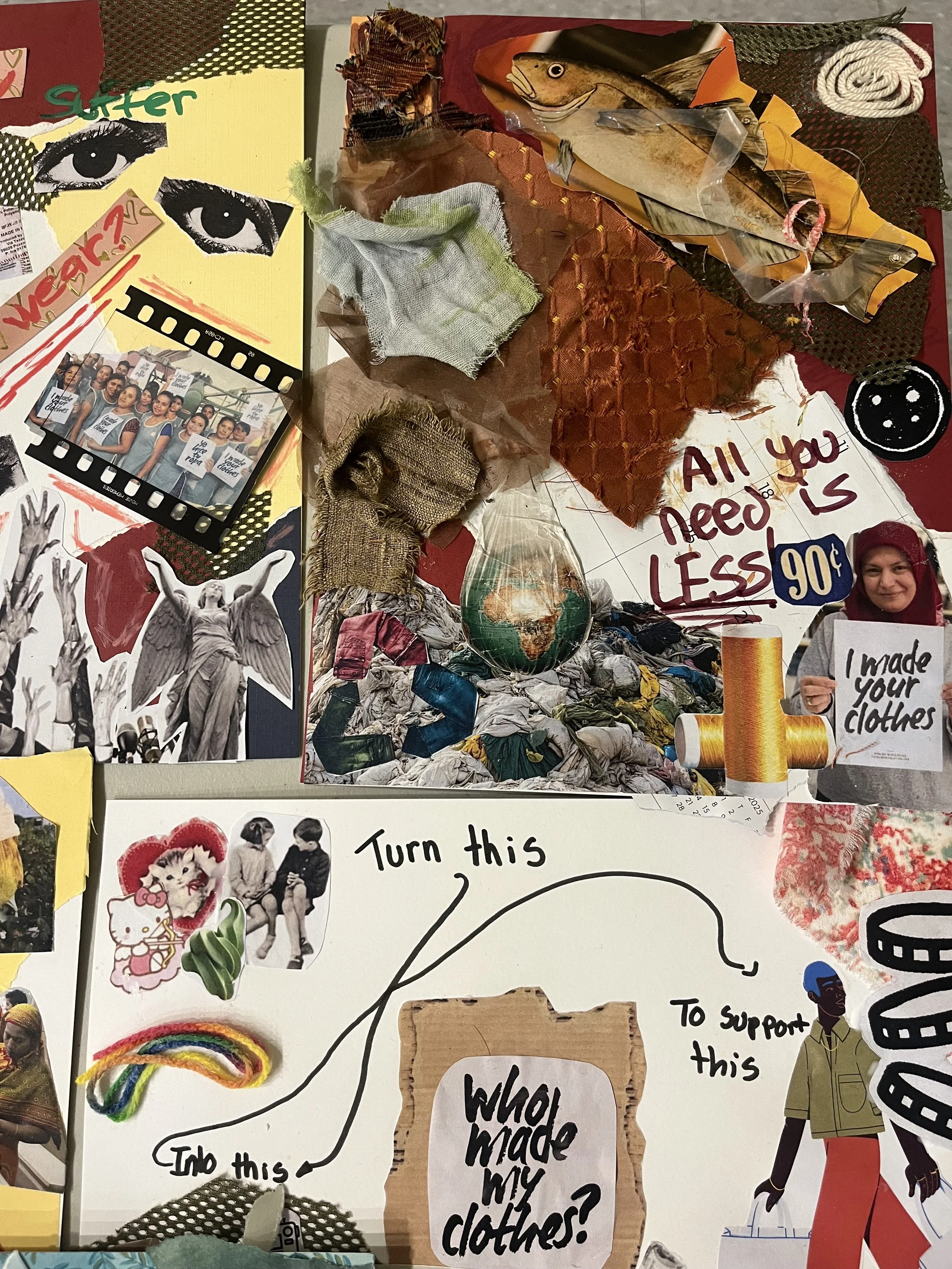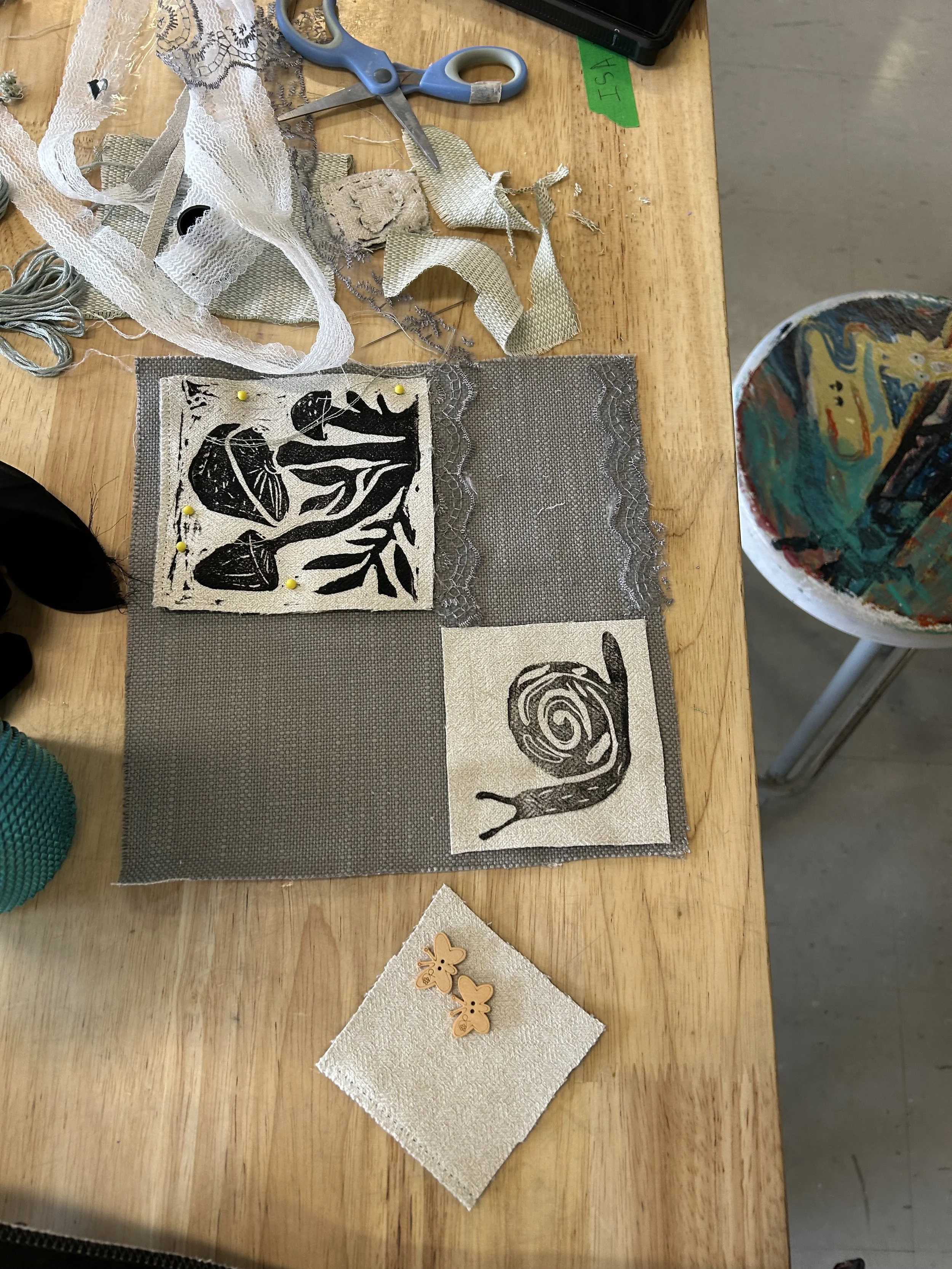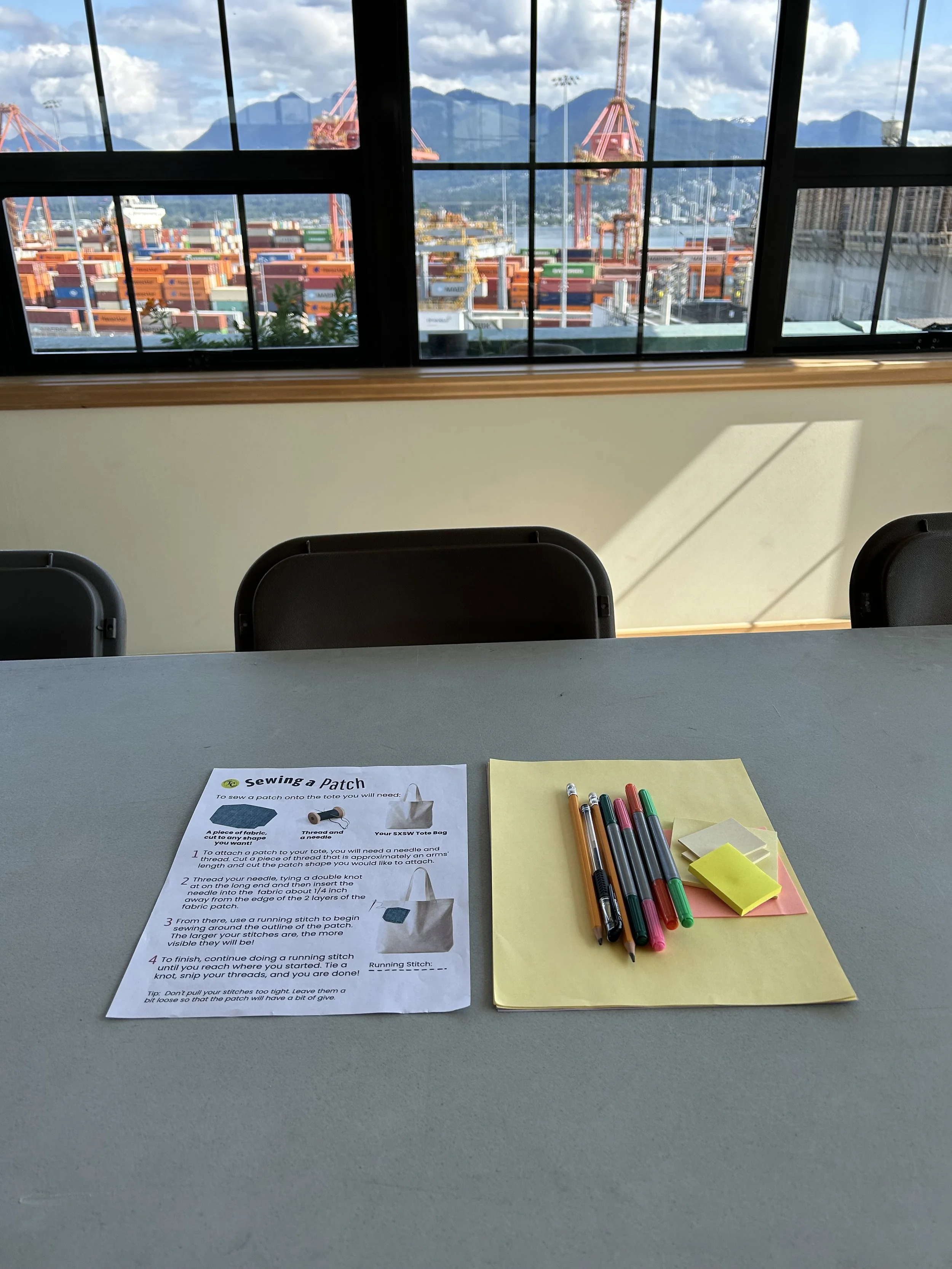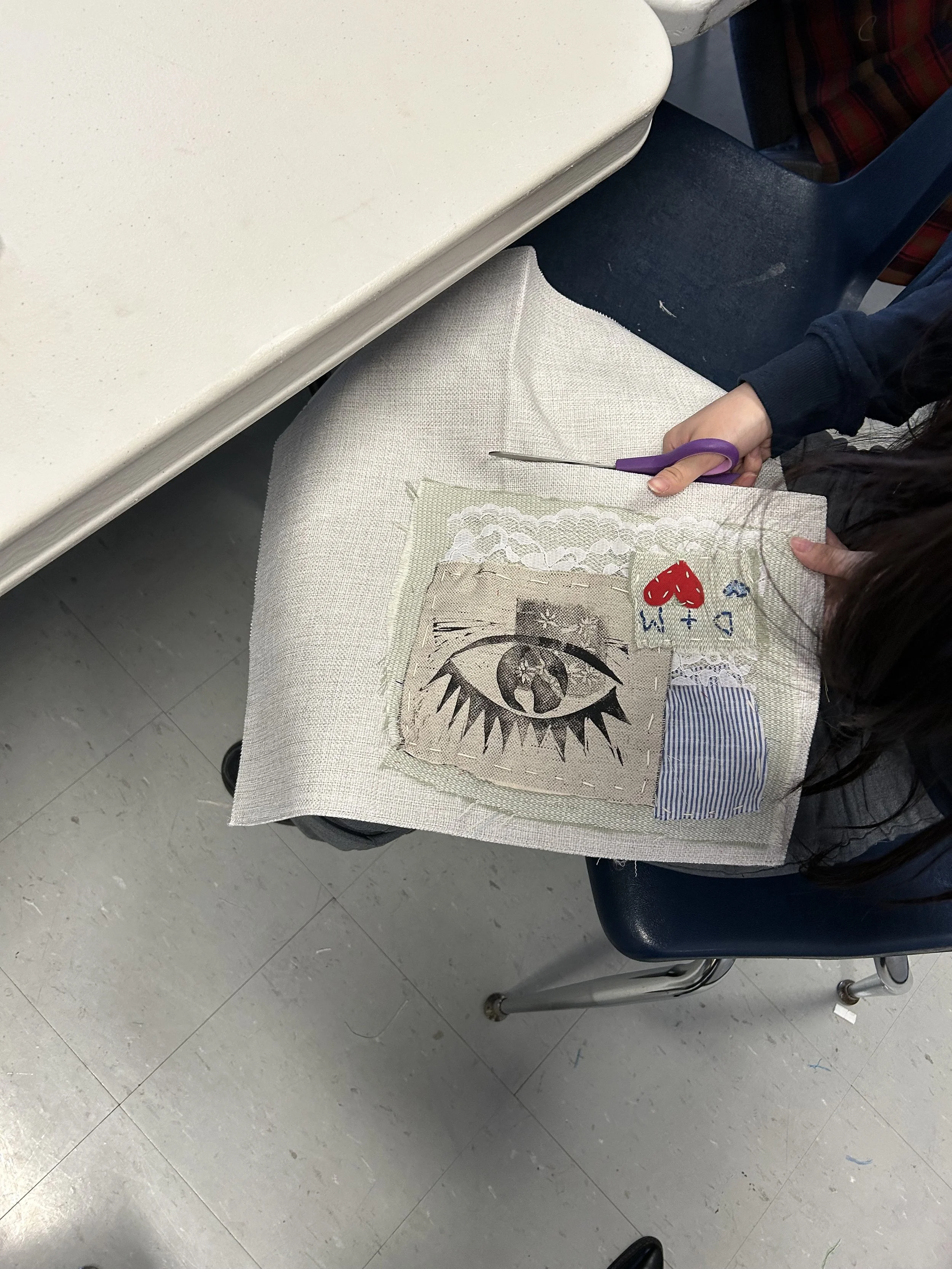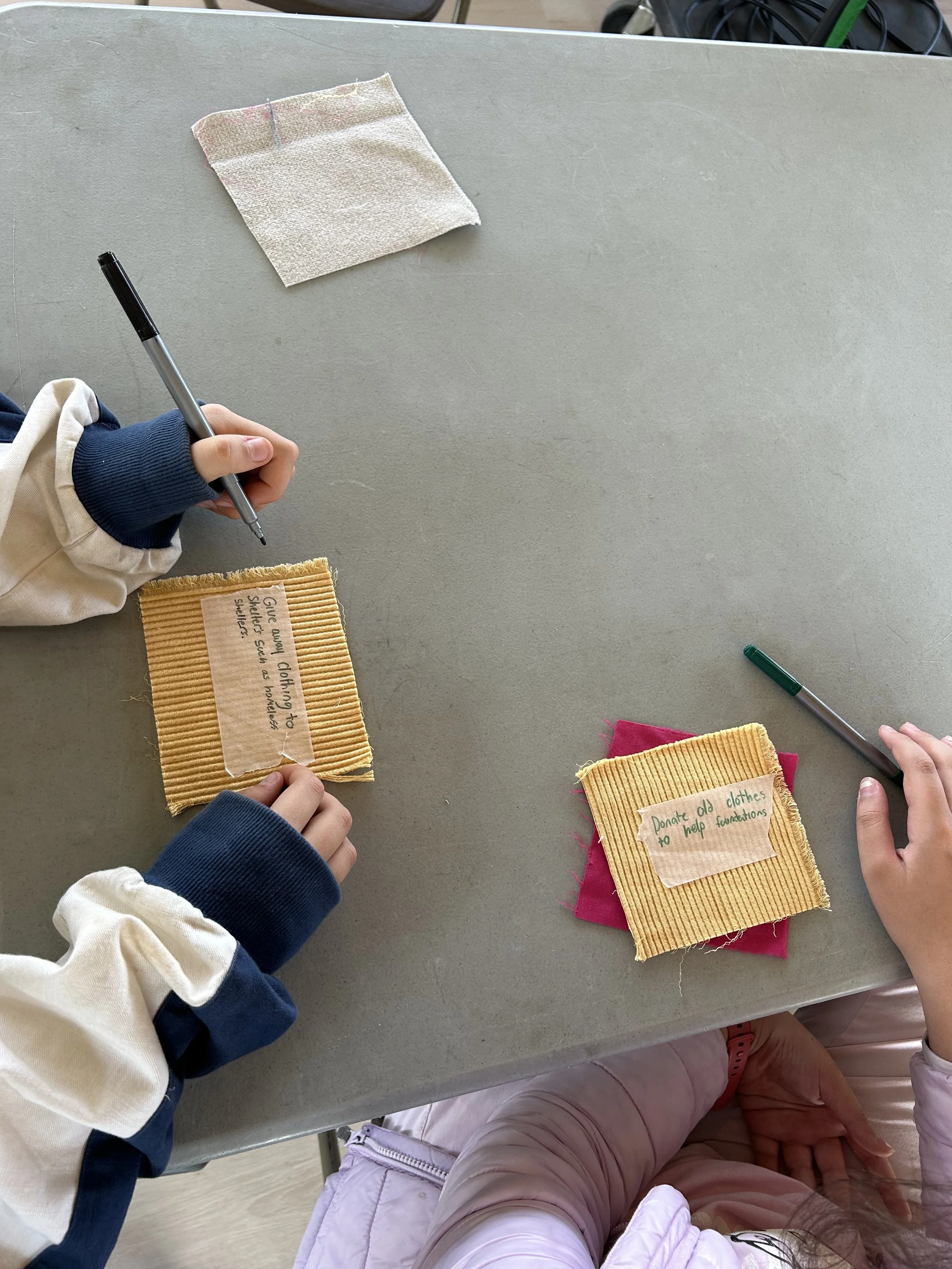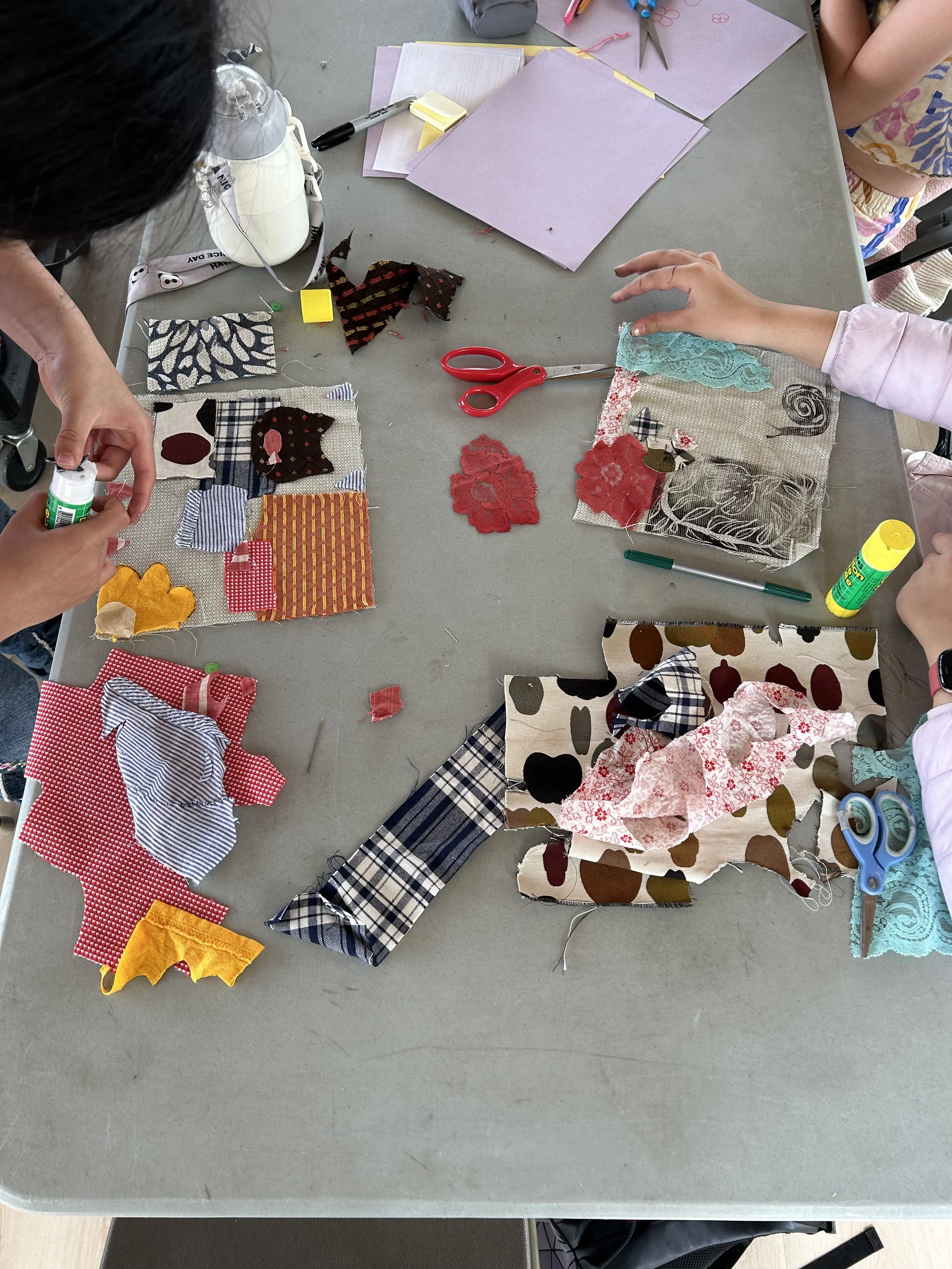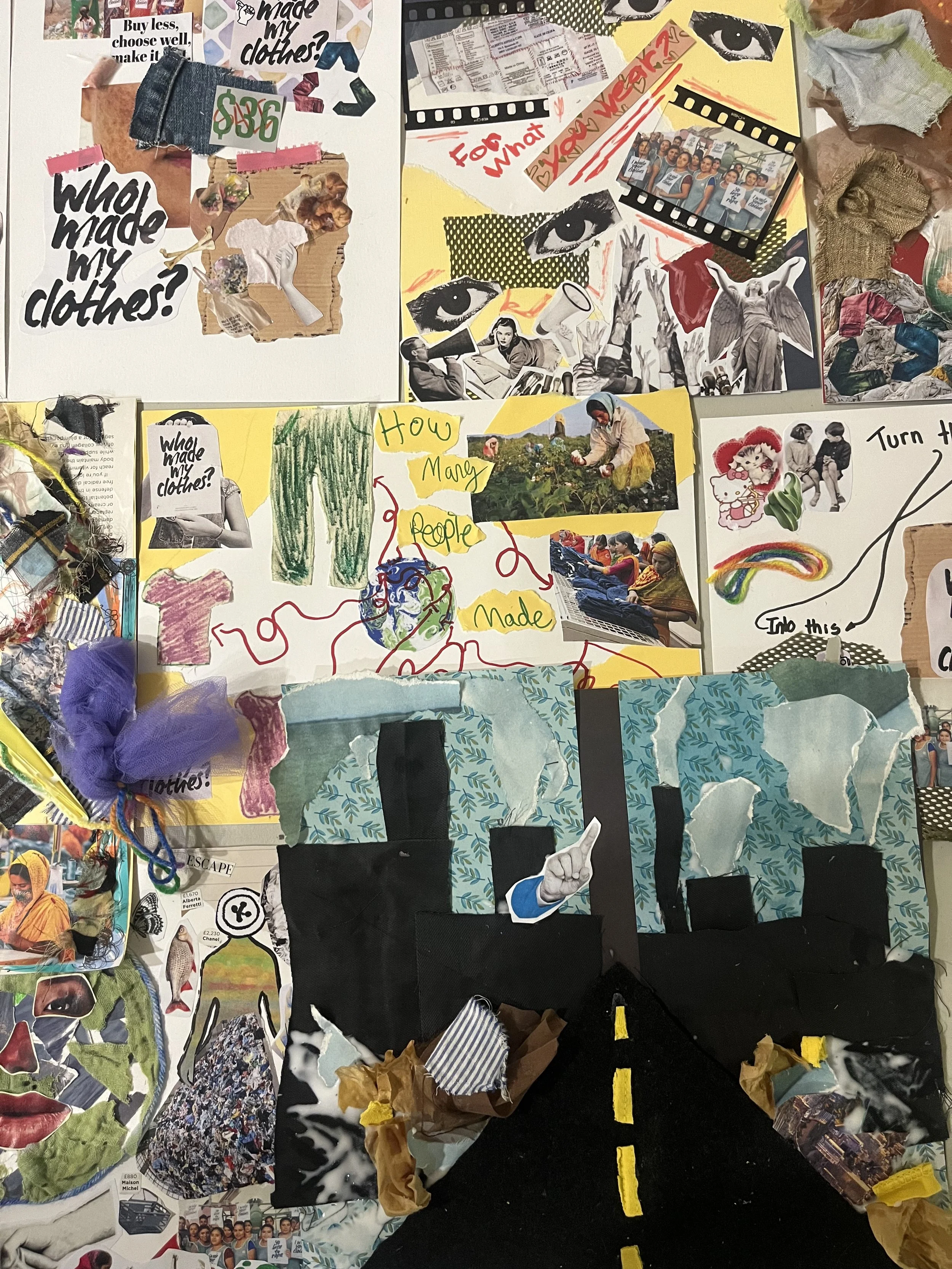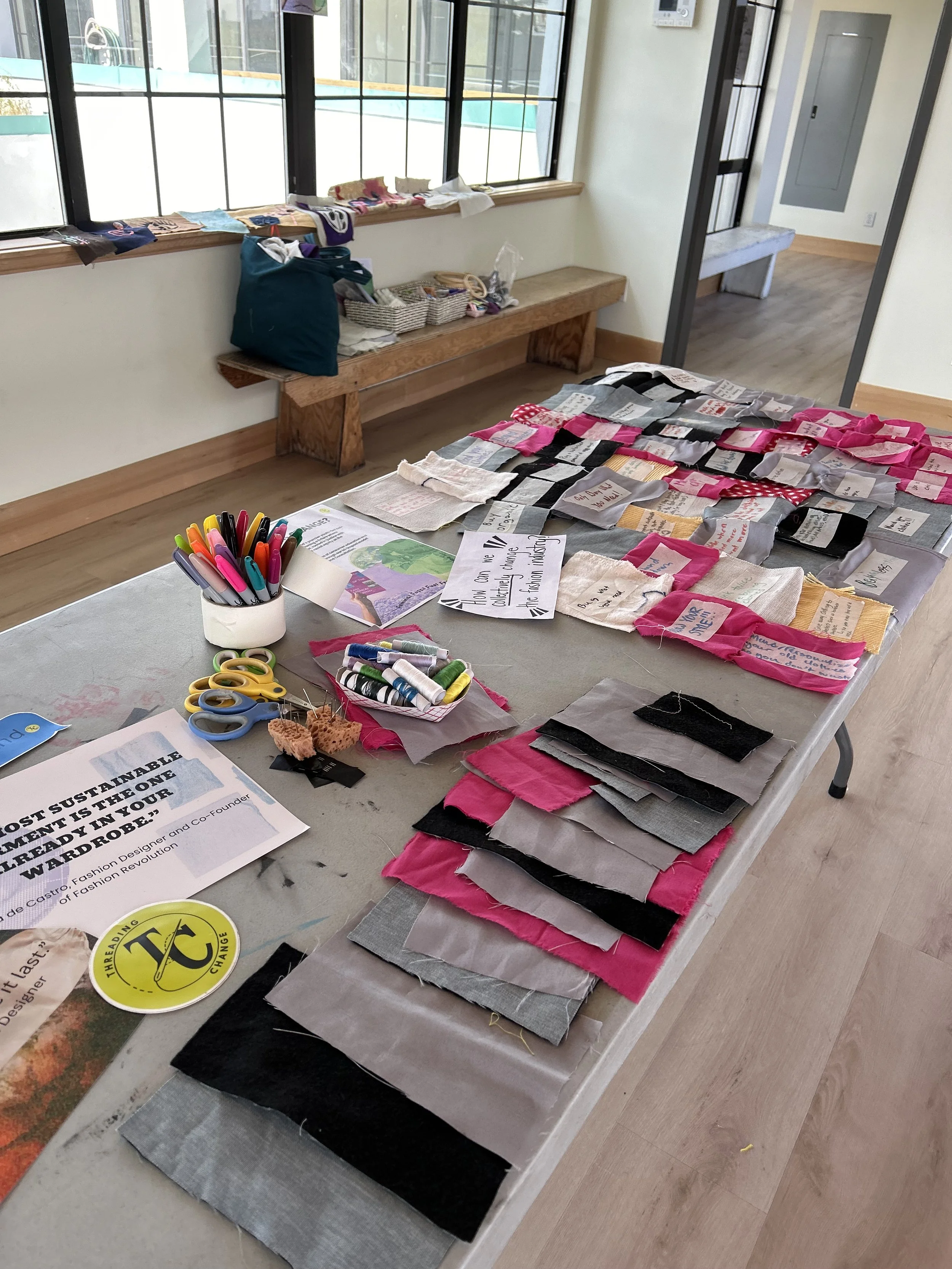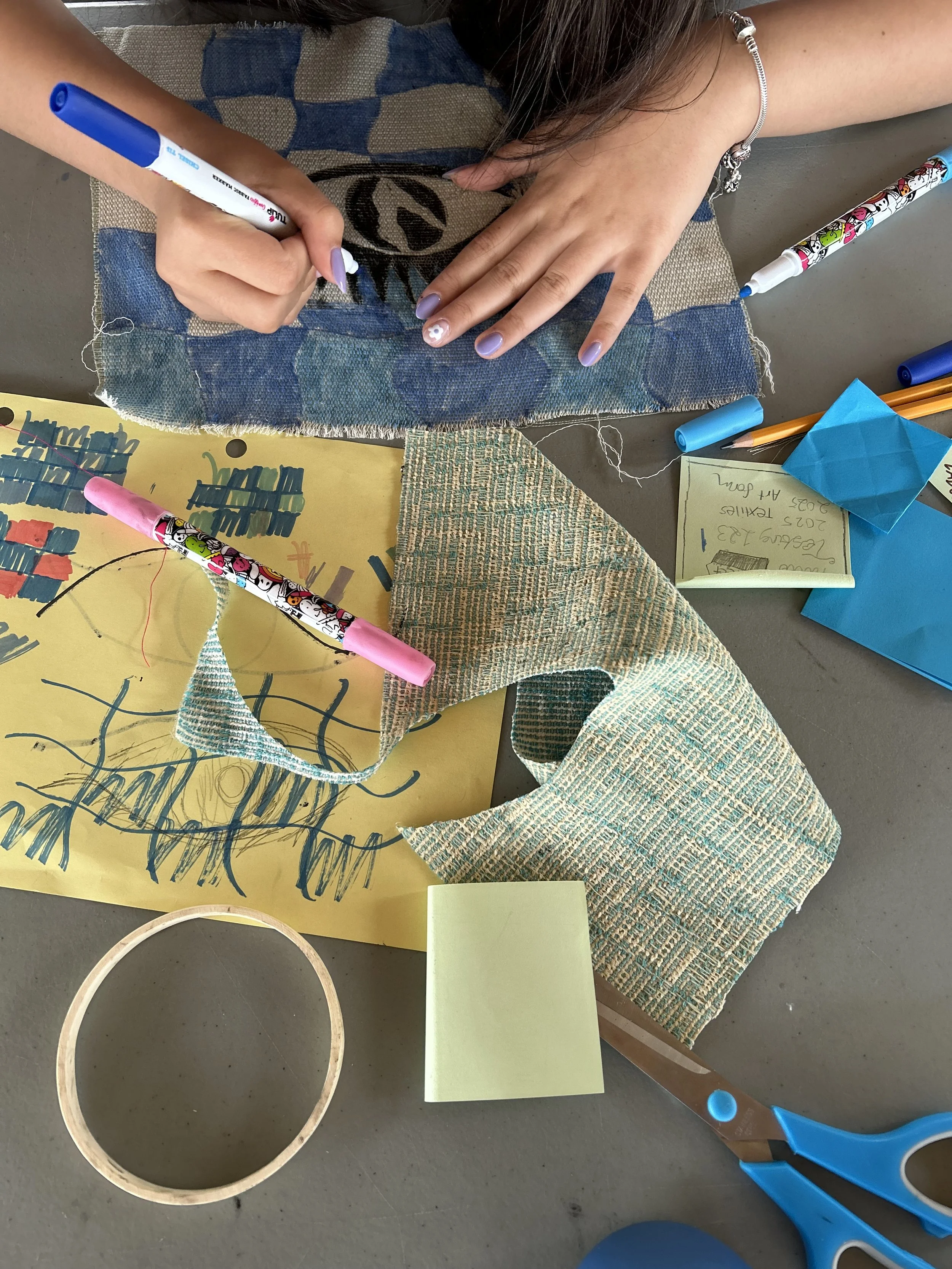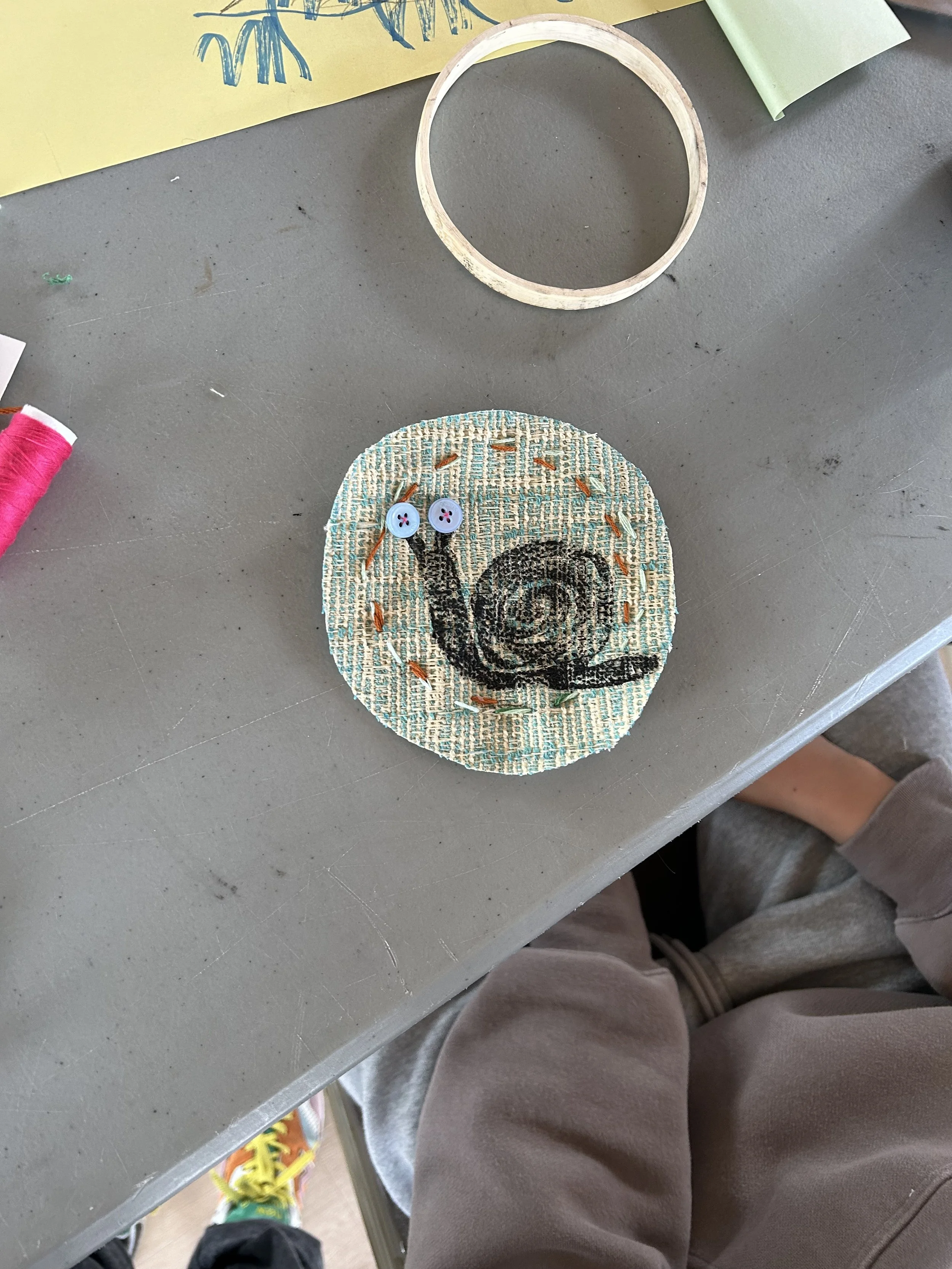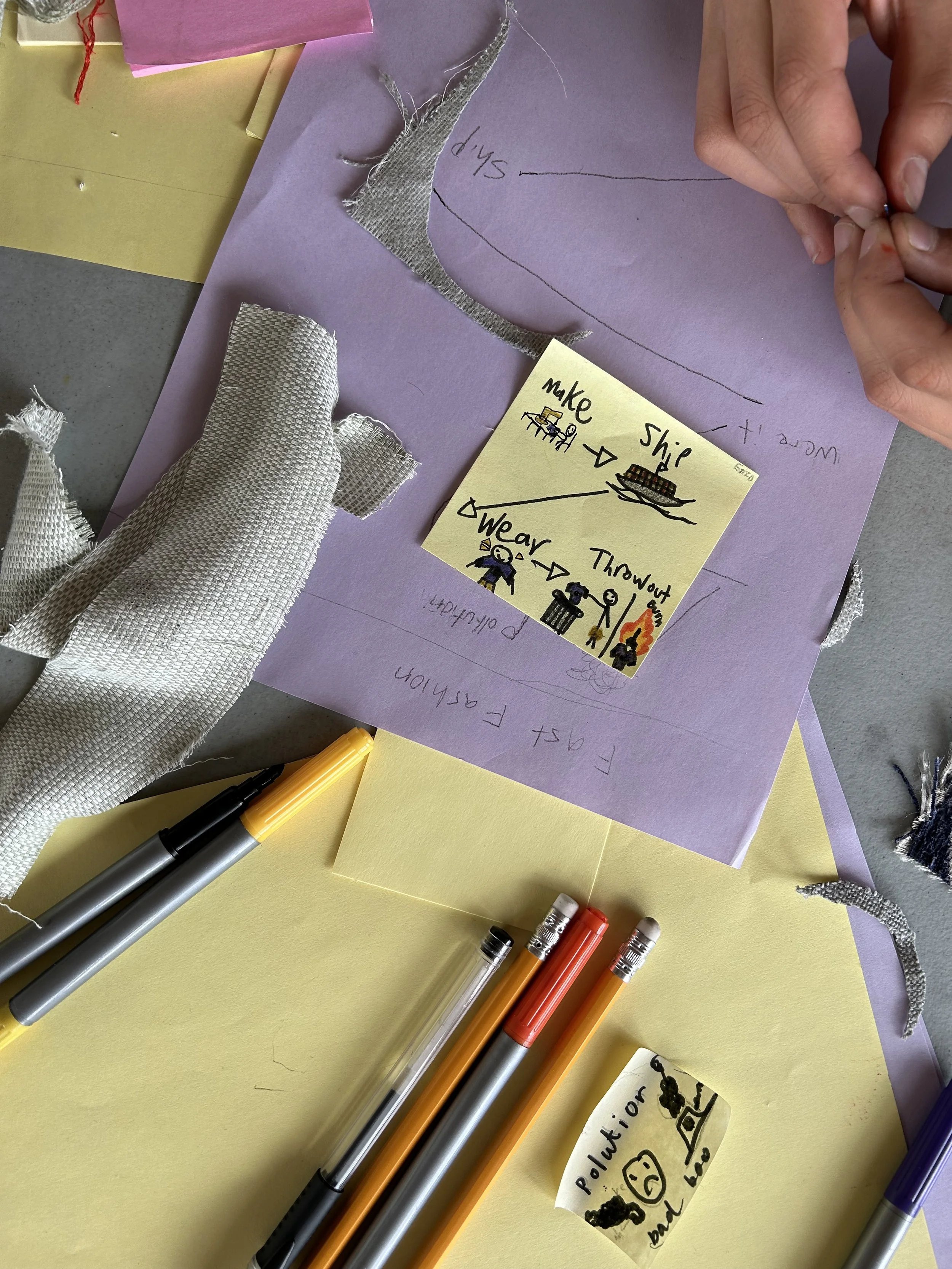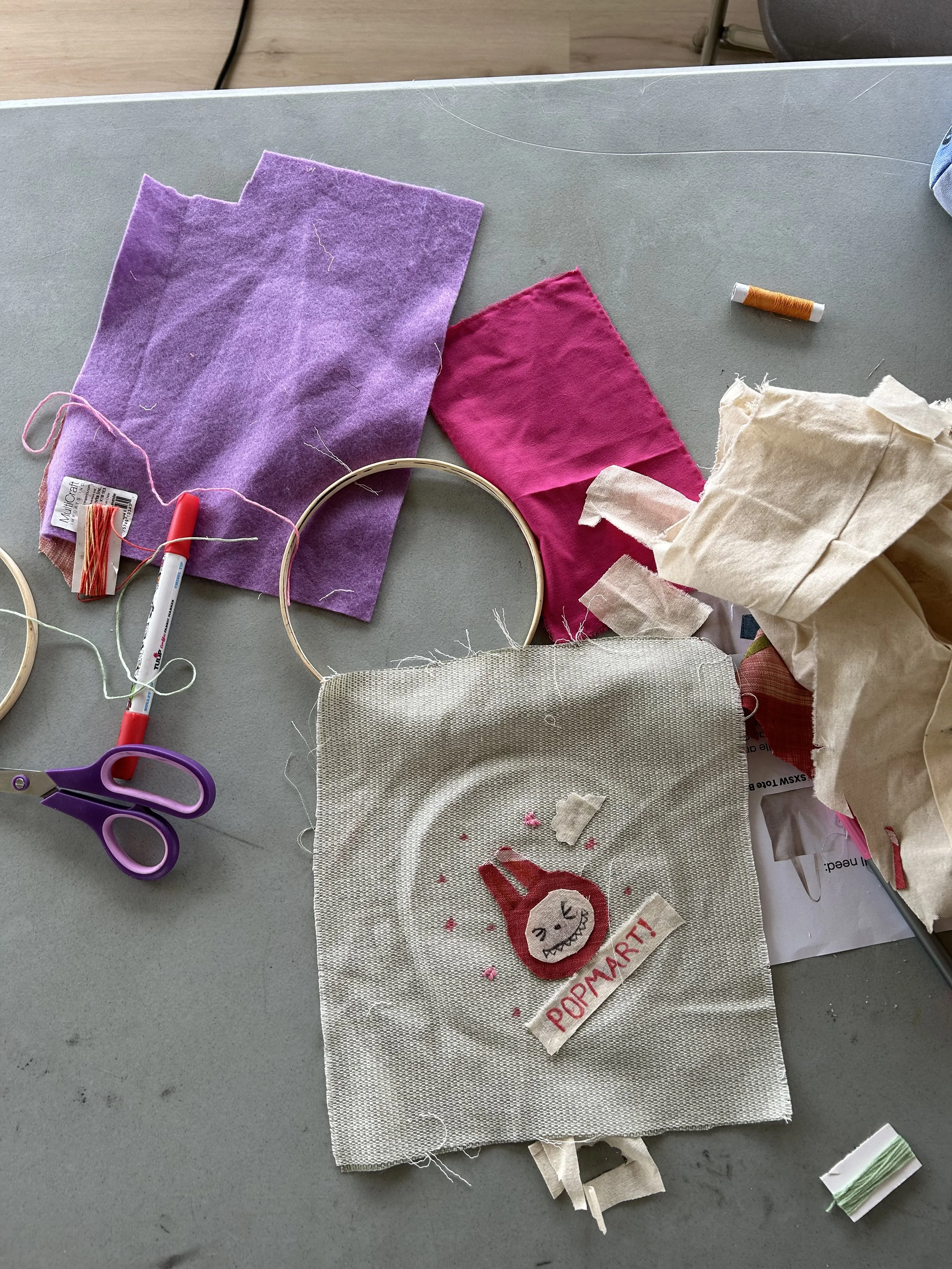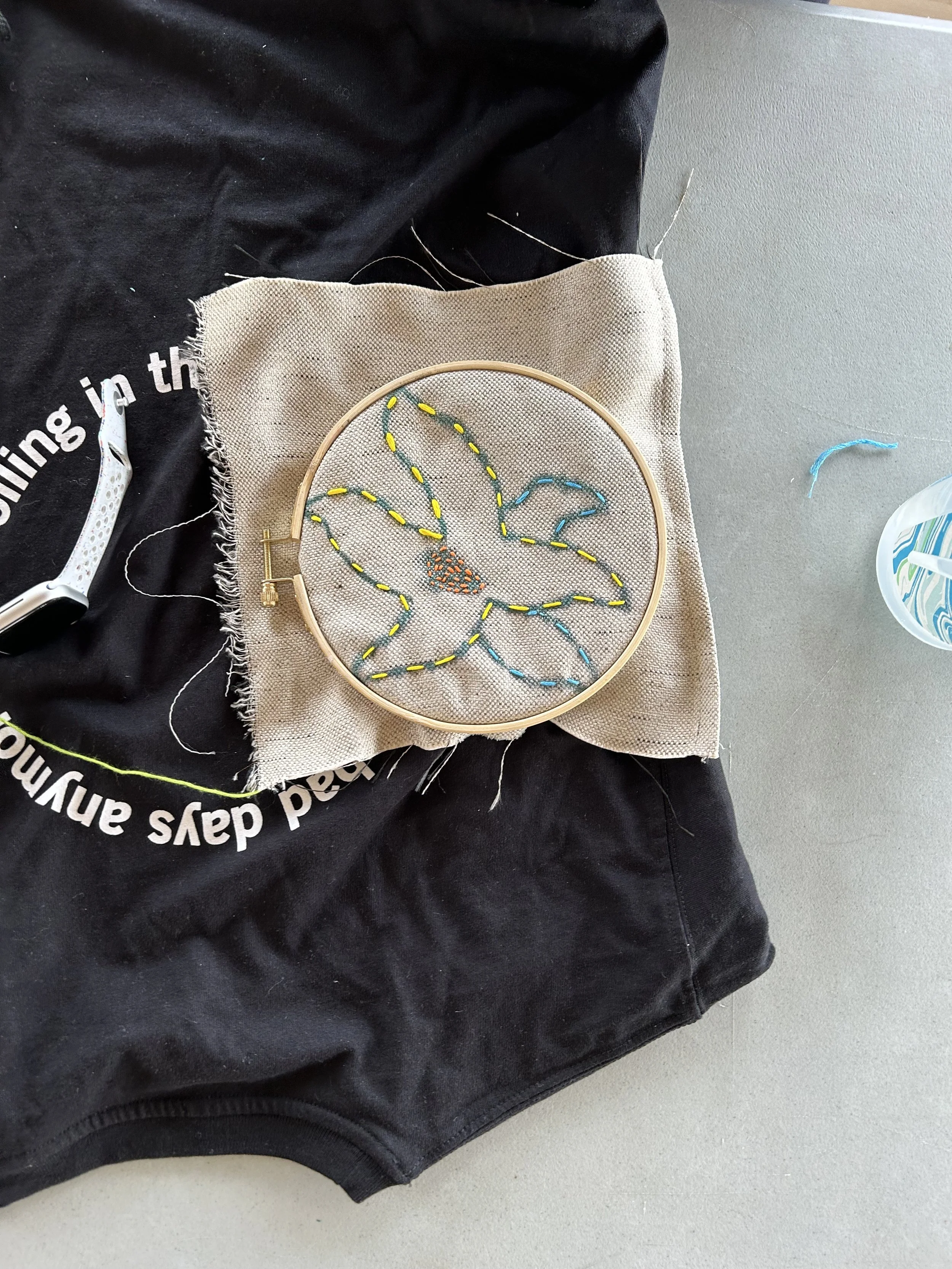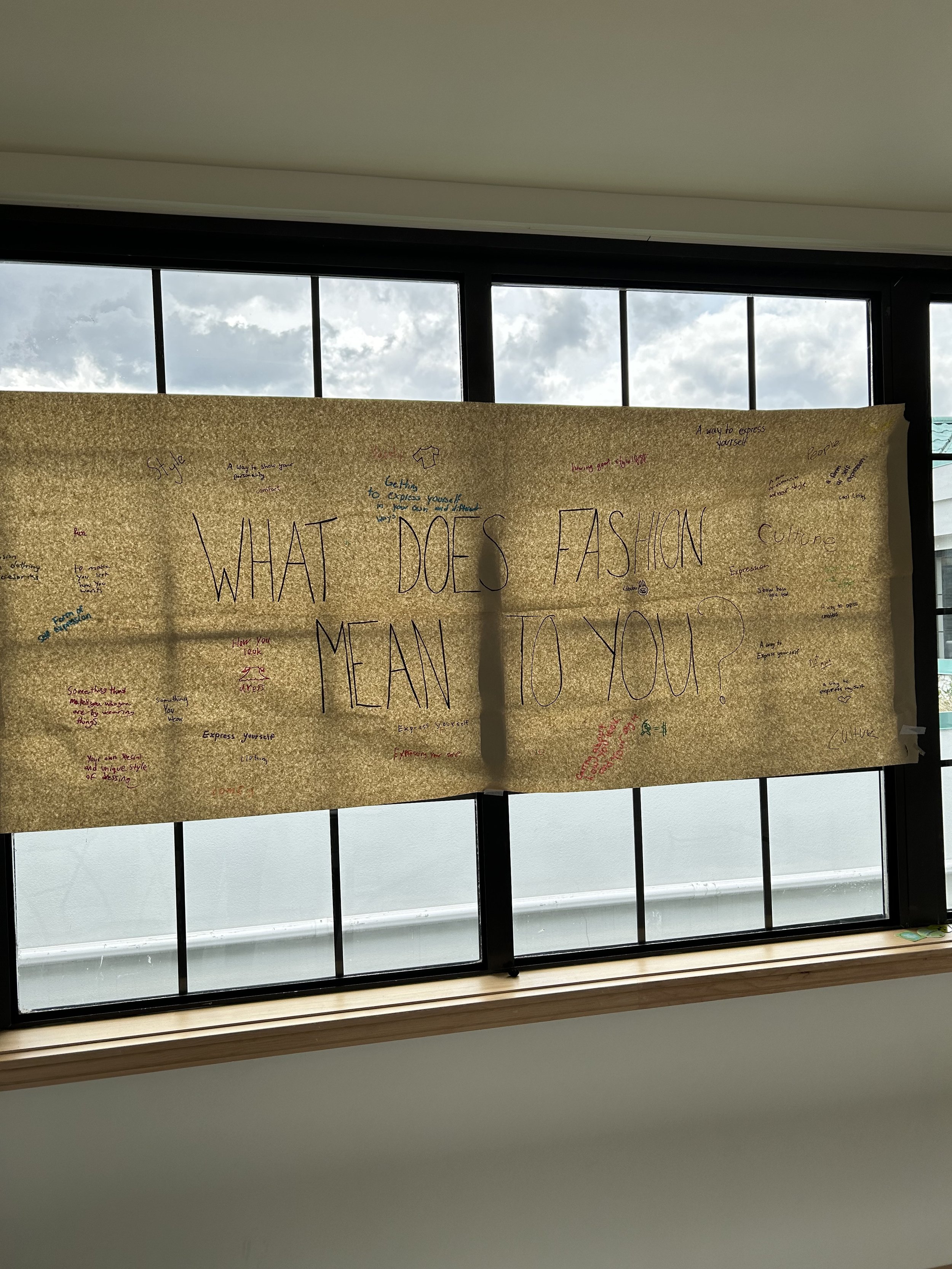
Threading Change & Education
Empowering, a community built on knowledge sharing to act consciously and critically .
Education is the key to inspiring transformation. Our international programming addresses the systemic challenges facing the global textile and apparel industry, bringing together experts, brands, and community members to discuss a wide range of issues—from fashion supply chains to policy, design, and innovation. Since our launch in 2020, our webinar series has attracted a global audience and inspired hundreds of listeners to become more mindful of the impacts of the fashion industry. The inaugural episode of Textile Talks marked the launch of Threading Change, exploring why fashion is an intersectional issue.
Through our educational programming—ranging from Textile Talks to in-school workshops—we raise awareness and connect experts, brands, and community members. We focus on integrating environmental education, design, and entrepreneurial skills to ignite conversations around issues like production, consumption and waste and encourage students to think critically about their clothes across their whole lifecycle. Our goal is to engage citizens with meaningful information that empowers them to drive change whether, in their local communities or in their future careers. We provide youth to think about alternative ways of thinking, making and doing, while providing valuable guidance to brands, future generations, and educators, supporting diverse educational discussions on environmental sustainability.
These discussions are a critical step in transitions to a clean, safe, fair, transparent and accountable fashion industry both locally and globally. At Threading Change, we embrace the question: How can education bridge the gap between citizens, the next generation, and future designers to reimagine a world where fashion is circular, ethical, and conscious?
Services.
We have developed interactive educational services that support the transition toward a cleaner, safer, fairer, more transparent, and accountable fashion industry, both locally and globally. The education services are designed for educators, citizens, and students at the secondary and post secondary levels. The services are relevant to a range of curriculums and disciplines from social studies to language arts to science and design. We believe that fashion, and its impact on our communities and environment, is by default an interdisciplinary issue we all are connected to.
-
Our flagship virtual program, Textile Talks, is a global webinar series that brings together industry experts, brands, and community members to explore pressing issues in the fashion sector. Topics range from fashion supply chains to policy, circular design, and textile innovation.
1-2 hours. Virtual and in person talks.
-
Our workshops and impact projects are designed as collaborative partnerships with secondary and post-secondary schools, as well as organizations, for both long-term engagements and individual workshops. We currently offer our workshops in areas such as the Circular Economy, the Environmental Impact of the Textile and Clothing Industry, and Ethical Fashion 101.
Half day to full day programming. Virtual and in person workshops.
-
Our free downloadable resources are informative, well-researched, and have been designed for use in organizational settings, these resources support both independent and group learning and application. These resources are versatile and can be applied across various sectors and settings.
Threading Change’s Friends of the Environment Education Series
Today’s youth are not only shaping the rise of social and environmental justice movements, but also embodying a deep understanding of global citizenship and its transformative power.
We are offering this program to Ontario and British Columbia students to empower youth by providing accessible environmental education to secondary students. Youth are often solely viewed as a target market and not as the future innovators and the change makers of today! We aim to empower the next generation and give them the skills to be critical and conscious global citizens.
In line with the provincial curriculum and policy, Threading Change strives to provide youth with the opportunities to acquire knowledge, skills, and perspectives that foster understanding of their fundamental connections to each other, to the world around them, and to all living things.
As the curriculum policy framework lays out the necessity to ensure that young people become environmentally active and responsible citizens who understand the complex systems in place that are causing the triple planetary crisis.
Environmental Impact of the Textile and Clothing Industry:
How is the climate crisis linked to the Fashion industry?
This program explores the environmental, climate, and biodiversity impacts of the fashion industry, focusing on the case study of fast fashion. We will discuss community-driven impact projects and sustainable innovations to counteract the industry's harm. Through the Fast fashion case study we will explore how high-volume production not only damages the planet but also has significant human costs.
Circular Economy 101, Challenges and Circular Solutions:
Upcycling, Recycling and Mindful Mending
This workshop will examine the linear business model in fast fashion, including its marketing, low prices, and impact on unsustainable consumption. We will then explore circular business models and the role of circular design in driving sustainable futures.
Ethical Fashion 101:
Exploring Social Justice Challenges in Fashion
This workshop will explore the social and human costs of the fashion industry, focusing on the exploitation of garment workers and the global cycle of overproduction and overconsumption. Students will examine the impact of unfair labor practices, gender, and media on equity, social justice, and sustainability in fashion. Through an inquiry-based approach, participants will develop critical and media literacy skills to understand and address issues within global fashion supply chains.
“Threading Change struck a good balance between presenter focused and student focused activities that tapped into a variety of different learning skills. My students were engaged for the entire session. I also appreciate your flexibility in adapting the timing of the workshop to fit with our time restrictions. I think that this workshop has increased student learning as well as curiosity about this issue. Bravo!”
-Secondary Teacher, TCDSB
“The information that was shared with the students regarding sustainable fashion - the content was relevant to their lives, it was eye-openning and it motivated students to act and apply their learning to the poster activity.”
- Visual Arts Secondary Teacher, TCDSB
Are you part of a student group? Are you an educator? Do you want to teach your students or peers about sustainable fashion?
Send us an email to collaborate and schedule a presentation with Threading Change!
Free Educational Resources
Textile Waste Crisis
The thrill of a new wardrobe addition, the excitement of keeping up with ever-changing trends – these experiences have become intertwined with our sense of self and societal norms. Yet, as awareness grows surrounding the environmental and social impacts of our clothing consumption, the question arises: what do we do with all the clothes we've amassed?
This project is a collaborative student project, written and produced by University of British Columbia (UBC) students in collaboration with Threading Change. The work was funded by the Centre for Community Engaged Learning at UBC.
Design work credits: Isabelle Sain
How To Host Your Own Clothing Swap: A Guide by Threading Change
How to Host Your Own Clothing Swap is a step-by-step resource developed by Threading Change to help communities build more sustainable and connected approaches to clothing. Intended for student groups, nonprofits, and grassroots organizers, the guide outlines how to plan, host, and reflect on a successful swap while minimizing waste and avoiding common pitfalls. By keeping clothing in circulation and encouraging shared responsibility, the guide highlights how swaps can foster community care, reduce reliance on new production, and challenge the culture of overconsumption embedded in the fashion industry.
Design work credits: Isabella Hamilton
A Brief History of Western Fashion
An introduction to western fashion and the impacts of it that are felt most deeply by those already marginalized and exploited. To break this cycle, we must address both the environmental and social injustices cemented in the dominant fashion industry’s history.
This project is a collaborative student project, written and produced by University of British Columbia (UBC) students in collaboration with Threading Change. The work was funded by the Centre for Community Engaged Learning at UBC.
Design work credits: Isabelle Sain
What is Fast Fashion?
An introduction to the fast fashion industry and the environmental and social injustices cost of having a reliance on such an unjust and unsustainable system.
This project is a collaborative student project, written and produced by University of British Columbia (UBC) students in collaboration with Threading Change. The work was funded by the Centre for Community Engaged Learning at UBC.
Design work credits: Isabelle Sain
This guide highlights the crafts of Indigenous peoples who live and create on Turtle Island.
These Indigenous artists and designers use fashion as a way to disrupt
fashion narratives. What these textiles share is a connection to tradition and resistance to the deeply harmful colonial fashion industry by reclaiming their art and heritage.
How do we decipher which fabrics are sustainable?
There isn’t just one fabric that can solve all our problems because every fabric requires some sort of production.
Here are a guide with a few textiles that are more sustainable options and may align with your needs and values.
Modern Slavery is still in the fashion Supply chain.
As consumers and citizens it is important to challenge brands to take responsibility and end the slavery, exploitation and human trafficking within their supply chains.
